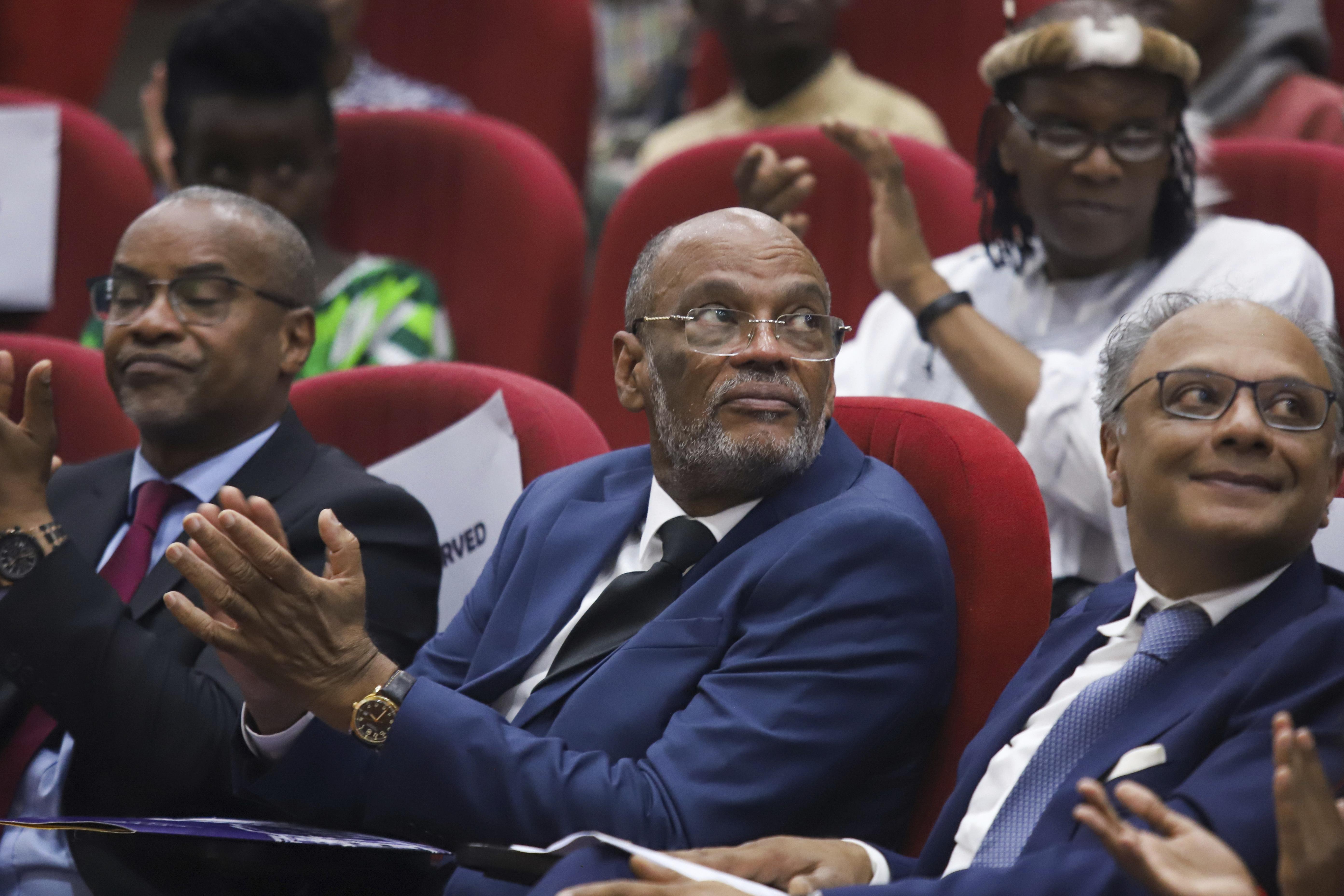
Haitian Prime Minister Ariel Henry announced early Tuesday that he would resign once a transitional presidential council is created, bowing to international pressure to save the country overwhelmed by violent gangs that some experts say have unleashed a low-scale civil war.
Henry made the announcement hours after officials including Caribbean leaders and U.S. Secretary of State Antony Blinken met in Jamaica to urgently discuss a solution to halt Haiti’s spiraling crisis and agreed to a joint proposal to establish a transitional council.
“The government that I’m running cannot remain insensitive in front of this situation. There is no sacrifice that is too big for our country,” Henry said in a videotaped statement. “The government I’m running will remove itself immediately after the installation of the council.”
Henry has been unable to enter Haiti because the violence closed its main international airports. He had arrived in Puerto Rico a week ago, after being barred from landing in the Dominican Republic, where officials said that he lacked a required flight plan. Dominican officials also closed the airspace to flights to and from Haiti.
It wasn’t immediately clear who would be chosen to lead Haiti out of the crisis in which heavily armed gangs have burned police stations, attacked the main airport and raided two of the country’s biggest prisons. The raids resulted in the release of more than 4,000 inmates.
Scores of people have been killed, and more than 15,000 are homeless after fleeing neighborhoods raided by gangs. Food and water are dwindling as stands and stores selling to impoverished Haitians run out of goods. The main port in Port-au-Prince remains closed, stranding dozens of containers with critical supplies.
The urgent meeting in Jamaica was organized by Caricom, a regional trade bloc that has pressed for months for a transitional government in Haiti while violent protests in the country demanded Henry’s resignation.
Guyana President Irfaan Ali said that the transitional council would have seven voting members and two nonvoting ones.
Those with votes include the Pitit Desalin party, run by former senator and presidential candidate Moïse Jean-Charles, who is now an ally of Guy Philippe, a former rebel leader who led a successful 2004 coup and was recently released from a United States prison after pleading guilty to money laundering. Also with a vote is the EDE party of former prime minister Charles Joseph; the Fanmi Lavalas party; the December 21 coalition led by Henry; the Montana Accord group; and members of the private sector.
Before sharing details of the proposed transitional council, Ali said, “I want to pause and thank Prime Minister Henry for his service to Haiti,” as Caribbean leaders and others clapped.
Henry served the longest single term as prime minister since Haiti’s 1987 constitution was approved, a surprising feat for a politically unstable country with a constant turnover of premiers. He was sworn in as prime minister nearly two weeks after the July 7, 2021, assassination of President Jovenel Moïse.
Critics of Henry note he was never elected by the people, much less Parliament, since it remains nonexistent after the terms of the last remaining senators expired in January 2023, leaving Haiti without a single elected official.
As Haiti prepares for new leadership, some experts question the role that heavily armed gangs who control 80% of Port-au-Prince will play.
“Even if you have a different kind of government, the reality is that you need to talk to the gangs,” said Robert Fatton, a Haitian politics expert at the University of Virginia. “You can’t suppress them.”
He said officials will still have to deal with them and try to convince them to give up their weapons, “but what would be their concessions?”
Fatton noted that gangs have supremacy in terms of controlling the capital. “If they have that supremacy, and there is no countervailing force, it’s no longer a question if you want them at the table, they may just take the table.”
Earlier on Monday, Blinken announced an additional $100 million to finance the deployment of a multinational force to Haiti. Blinken also announced another $33 million in humanitarian aid and the creation of a joint proposal agreed on by Caribbean leaders and “all of the Haitian stakeholders to expedite a political transition” and create a “presidential college.”
He said the college would take “concrete steps” he did not identify to meet the needs of Haitian people and enable the pending deployment of the multinational force to be led by Kenya. Blinken also noted that the United States Department of Defense doubled its support for the mission, having previously set aside $100 million.
While leaders met behind closed doors, Jimmy Chérizier, considered Haiti’s most powerful gang leader, told reporters that if the international community continues down the current road, “it will plunge Haiti into further chaos.”
“We Haitians have to decide who is going to be the head of the country and what model of government we want,” said Chérizier, a former elite police officer known as Barbecue, who leads the gang federation G9 Family and Allies. “We are also going to figure out how to get Haiti out of the misery it’s in now.”
Powerful gangs have been attacking key government targets across Haiti’s capital of Port-au-Prince since Feb. 29. When the attacks began, Henry was in Kenya pushing for the United Nations-backed deployment of a police force from the East African country after it was delayed by a court ruling.
Late Monday, the Haitian government announced it was extending a nighttime curfew until March 14 in an attempt to prevent further attacks.
– Dánica Coto and Evens Sanon, AP News


